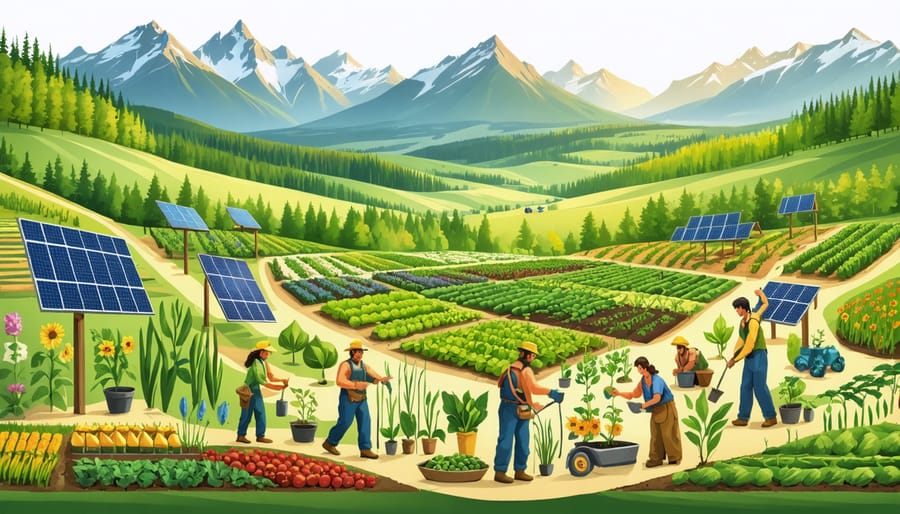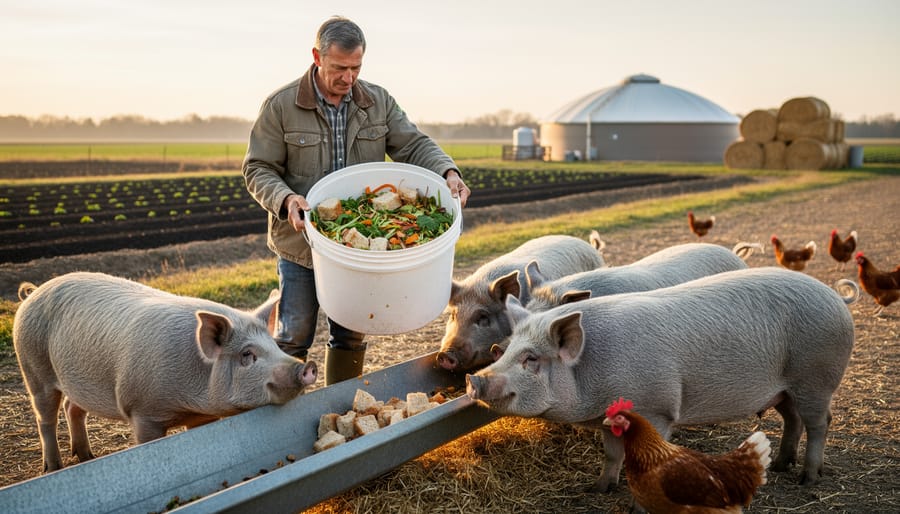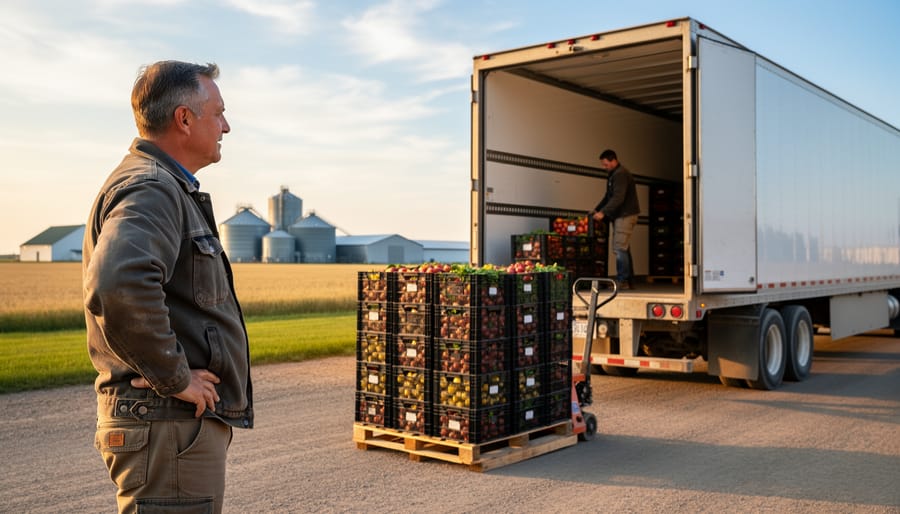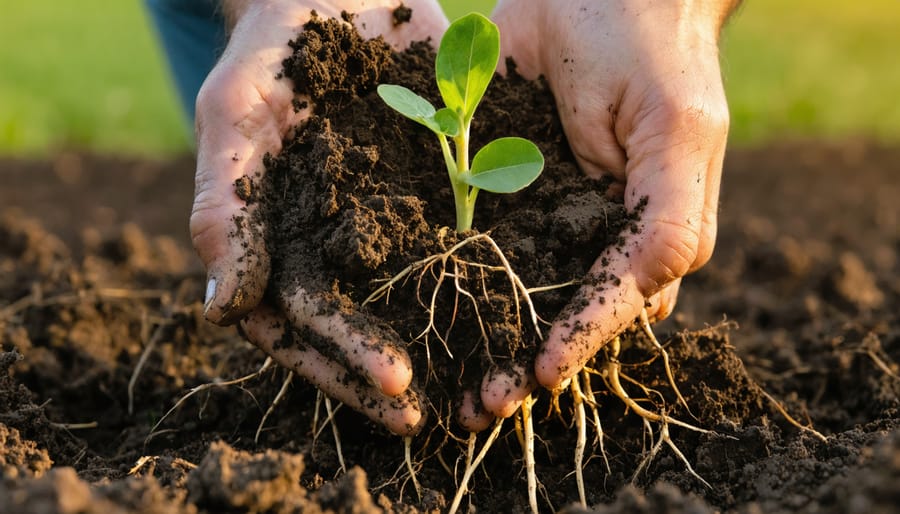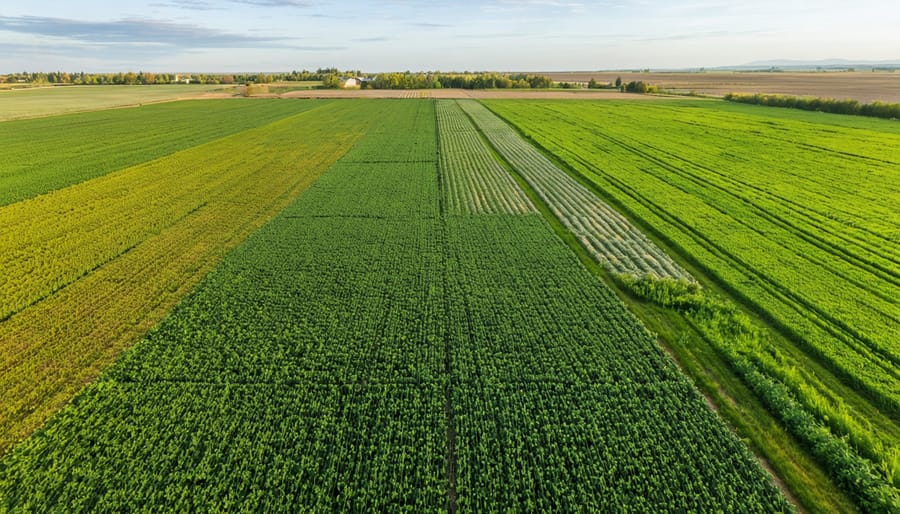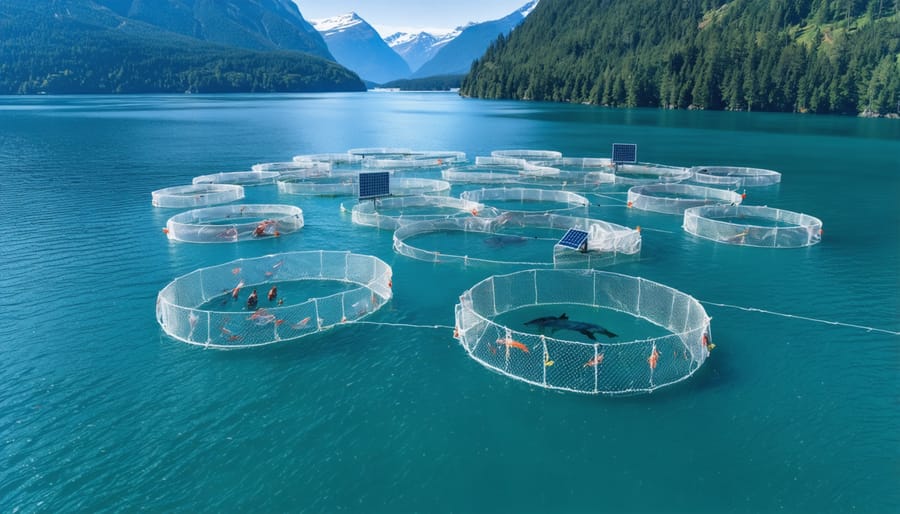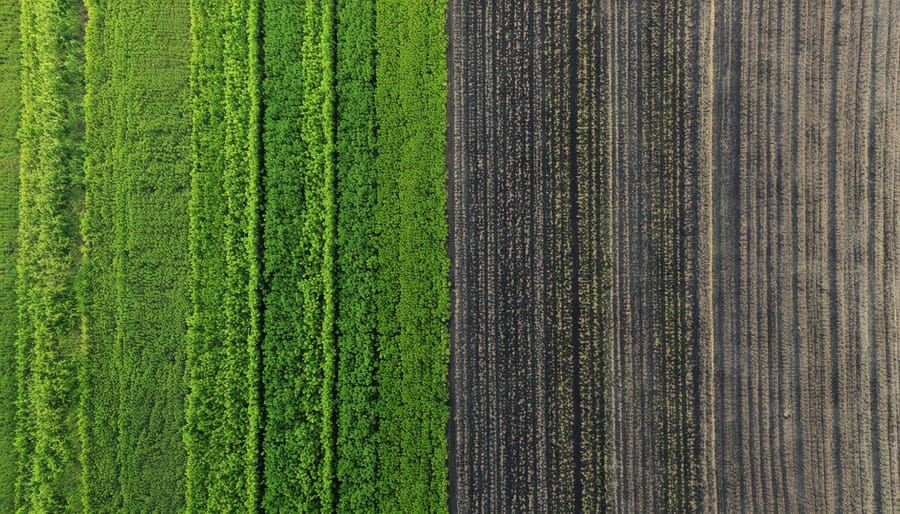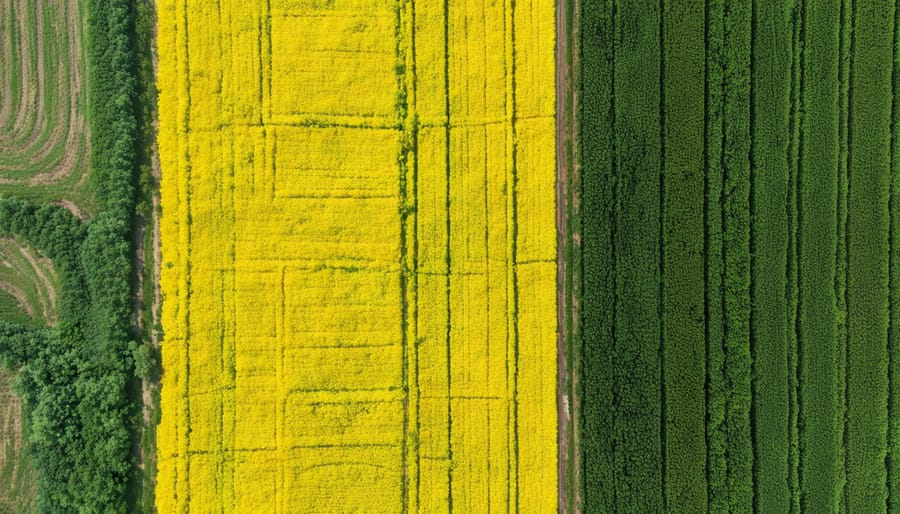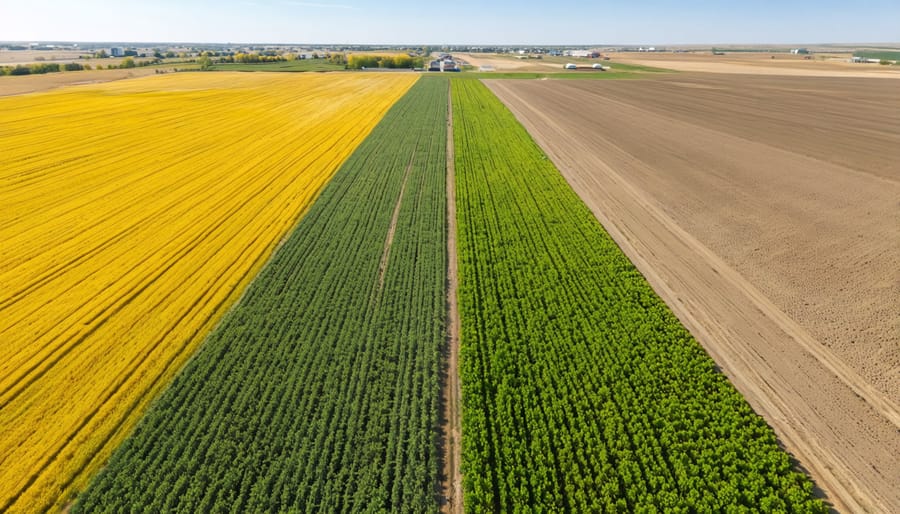Building a sustainable food system demands urgent action across Alberta’s agricultural landscape, where local producers are revolutionizing how we approach food security in urban areas and rural communities alike. Regional food networks must integrate regenerative farming practices, efficient distribution systems, and equitable access to nutritious food for all community members. The transformation requires a three-pronged approach: strengthening local supply chains to reduce transportation emissions, implementing water-smart irrigation techniques that preserve our precious water resources, and developing collaborative partnerships between farmers, Indigenous communities, and urban consumers.
Success stories from Alberta’s sustainable agriculture initiatives demonstrate that when farmers adopt climate-resilient practices while maintaining profitable operations, entire communities benefit. By focusing on soil health, biodiversity, and waste reduction, our agricultural sector can lead the way in creating a food system that nourishes both people and the planet for generations to come. The time for incremental changes has passed – we need bold, systemic solutions that address both environmental sustainability and social equity in our food production methods.
The Foundation of Equitable Food Access
Local Food Infrastructure
A robust local food infrastructure forms the backbone of a resilient food system in Alberta. Essential components include properly equipped storage facilities, processing centers, and sustainable distribution networks that connect producers directly with consumers. These facilities need to accommodate various storage requirements, from temperature-controlled environments for fresh produce to dry storage for grains and pulses.
Regional food hubs have proven particularly successful in Alberta, serving as centralized locations where farmers can aggregate, process, and distribute their products. The Innisfail Growers cooperative, for example, demonstrates how shared infrastructure can help small-scale producers access larger markets while maintaining product quality and reducing individual overhead costs.
Modern technology plays a crucial role in infrastructure development, with digital platforms facilitating efficient inventory management and distribution tracking. Investment in cold chain infrastructure is especially important for our climate, ensuring year-round access to local produce while minimizing food waste. Community-supported facilities, such as shared commercial kitchens and processing units, enable value-added production and help farmers diversify their income streams while strengthening local food security.
Fair Price Mechanisms
Fair pricing mechanisms are essential for maintaining balance in our food system, ensuring both farmer sustainability and consumer access to nutritious food. In Alberta, successful models like the Open Farm Days initiative demonstrate how direct-to-consumer sales can create win-win situations, with farmers receiving fair compensation while offering competitive prices to buyers.
Local food co-operatives and farmers’ markets across the province have implemented sliding scale pricing systems, allowing consumers from different economic backgrounds to access fresh, local produce while ensuring farmers receive living wages. The Innisfail Growers cooperative, for instance, uses a transparent pricing model that accounts for production costs, labour, and reasonable profit margins.
Producer-led initiatives like community-supported agriculture (CSA) programs provide stable income for farmers through advance payments while offering members bulk pricing advantages. The Growing Food Security in Alberta network has documented how these arrangements help stabilize farm incomes and make local food more accessible to diverse communities.
To support these mechanisms, provincial programs offer grants and resources for farmers implementing innovative pricing strategies, particularly those incorporating social equity considerations into their business models.
Community-Based Solutions in Action
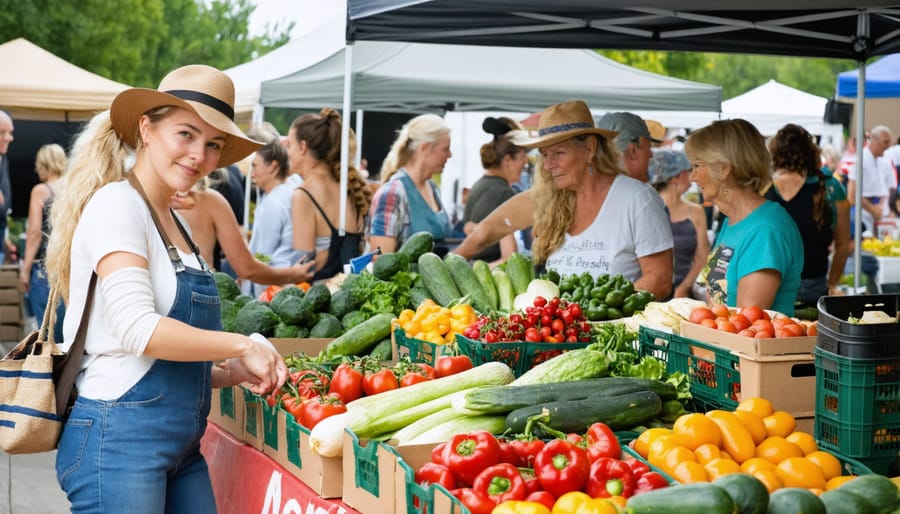
Farmer’s Market Initiatives
The Crossroads Farmers’ Market in Calgary exemplifies how inclusive market initiatives can strengthen local food systems while promoting social equity. Since its establishment in 2019, this market has implemented a unique “Market Money” program, allowing low-income residents to double their purchasing power for fresh, local produce. The program has benefited over 2,000 families and generated an additional $180,000 in revenue for local farmers.
In Edmonton, the Fresh Routes mobile market initiative has revolutionized food accessibility by bringing fresh produce directly to underserved communities. Operating from converted buses, these mobile markets visit seniors’ residences, community centres, and areas designated as food deserts. The program partners with local farmers to source produce and offers competitive prices while accepting various payment methods, including SNAP benefits.
The Medicine Hat Community Market demonstrates how farmers’ markets can serve as educational hubs. Their “Farm to Family” program connects consumers directly with producers through monthly workshops, cooking demonstrations, and farm tours. This initiative has increased market attendance by 45% and helped establish lasting relationships between urban residents and rural farmers.
These successful market models share common elements: flexible payment options, strategic locations, partnerships with community organizations, and educational components. By incorporating these features, markets become more than just shopping venues – they transform into vital community spaces that support both local agriculture and food security while fostering social connections across economic boundaries.
Indigenous Food Sovereignty Programs
In Alberta, Indigenous-led food programs are demonstrating powerful approaches to sustainable food systems while honoring traditional knowledge and practices. The Maskwacis Food Sovereignty Initiative stands as a prime example, where four First Nations communities collaboratively manage community gardens, greenhouses, and traditional medicine gardens. This program has successfully integrated elder teachings with modern agricultural techniques, feeding over 500 families annually while preserving cultural food practices.
The Blood Tribe Agricultural Project in southern Alberta showcases large-scale Indigenous agriculture success, managing over 20,000 hectares of farmland. Their integrated approach combines traditional Three Sisters planting methods with contemporary farming practices, creating a sustainable model that supports both food security and economic development.
The Métis Crossing Cultural Gathering Centre near Smoky Lake has developed an innovative food program that connects youth with traditional food gathering and preparation methods. Their teaching garden and wild food harvesting programs have educated over 1,000 participants in sustainable food practices while strengthening cultural connections.
In Edmonton, the Indigenous Food Sovereignty Garden at MacEwan University demonstrates urban Indigenous food sovereignty in action. This collaborative project between local Indigenous communities and the university provides fresh, culturally appropriate foods while serving as an educational hub for sustainable agricultural practices.
These programs showcase how Indigenous leadership in food systems can create meaningful change, combining traditional ecological knowledge with modern sustainability practices to build resilient, culturally-rich food networks across Alberta.
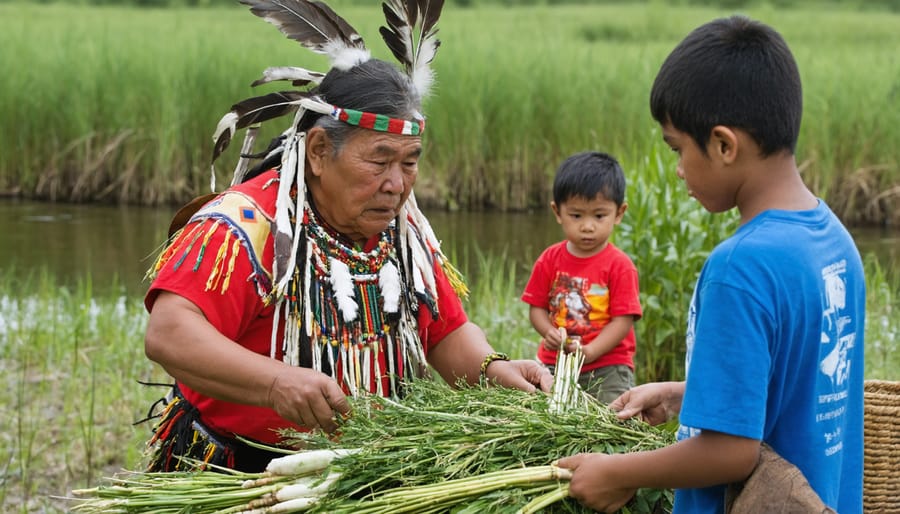
Breaking Down Economic Barriers
Innovative Payment Systems
In today’s evolving agricultural landscape, flexible payment systems and targeted subsidies play a crucial role in supporting sustainable farming practices. Alberta farmers are increasingly adopting innovative farming solutions through creative financing options that make sustainable transitions more accessible.
Local food box programs have pioneered sliding-scale payment models, allowing customers to pay based on their income while ensuring fair compensation for farmers. Several Alberta cooperatives have implemented successful community-supported agriculture (CSA) programs where members can contribute through various means, including work-trade arrangements and installment payments.
The Canadian Agricultural Partnership (CAP) provides targeted subsidies for sustainable farming initiatives, with specific programs supporting soil health improvements and water conservation projects. These programs typically cover 30-50% of project costs, making ecological transitions more financially viable for family farms.
Digital payment platforms have also transformed how farmers receive compensation, with some local food markets implementing mobile payment systems that process transactions instantly while tracking inventory and consumer preferences. This technology helps farmers better predict demand and reduce food waste.
Regional food hubs are piloting blockchain-based payment systems that increase transparency and ensure fair profit distribution throughout the supply chain. These systems allow consumers to see exactly how their food dollars are distributed, fostering trust and supporting fair pricing for producers.
Cooperative Models
Cooperative food models are emerging as powerful tools for building resilient local food systems across Alberta. The Westlock Terminal, a farmer-owned grain handling facility, demonstrates how collaborative ownership can give producers more control over their market access and fair pricing. Similar success stories include the Edmonton Good Food Box program, where community members pool resources to purchase fresh produce directly from local farmers at bulk prices.
Community-owned food businesses are gaining traction in rural areas, with notable examples like the Innisfail Growers cooperative, where five family farms work together to supply fresh vegetables to central Alberta. These arrangements allow farmers to share equipment, labour, and marketing costs while maintaining individual farm identities.
Buying clubs have become particularly effective in northern communities, where groups of 10-15 families regularly coordinate bulk purchases from regional producers. This model reduces transportation costs and ensures consistent market access for farmers while providing consumers with affordable, locally-sourced food.
The Calgary-based YYC Growers cooperative showcases how urban farming initiatives can thrive through collective organization. Their shared distribution system connects over 20 urban farms with thousands of city residents, proving that cooperative models can work in both rural and urban contexts.
For communities considering starting their own cooperative, the Alberta Community and Co-operative Association offers valuable resources and mentorship opportunities. Success often comes from starting small and growing based on community needs and capabilities.
Education and Engagement
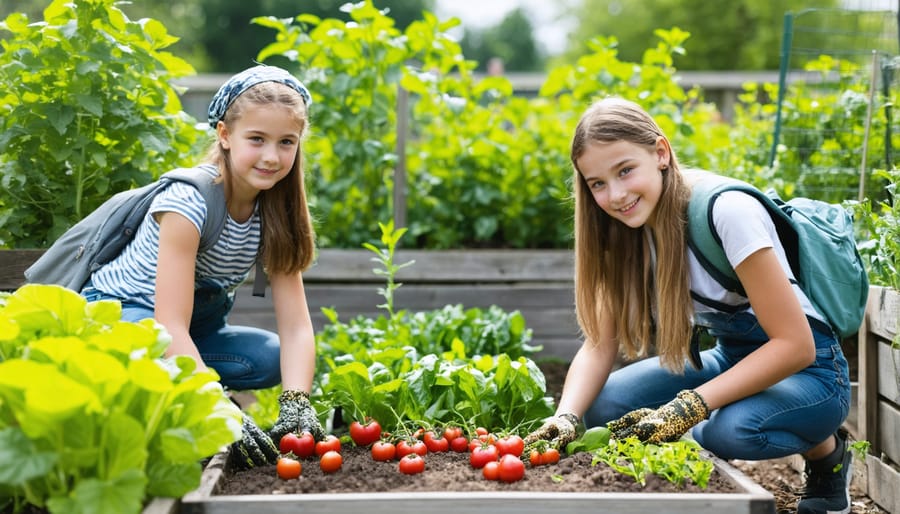
School Programs
Alberta’s schools are increasingly integrating food system education into their curricula, recognizing the vital role young people play in building a sustainable future. The “Farm to School Alberta” program, launched in 2019, has successfully connected over 100 schools with local farmers, creating opportunities for students to learn about sustainable growing practices firsthand.
School gardens have become particularly popular, with initiatives like the Edmonton School Garden Project showing impressive results. Students participate in planting, maintaining, and harvesting crops while learning about nutrition, food security, and environmental stewardship. These hands-on experiences help develop a deeper understanding of where food comes from and the importance of supporting local food systems.
Many schools have also implemented composting programs and food waste reduction initiatives, teaching students practical skills they can apply at home. The Alberta Food Matters’ “Think About Food” curriculum resource helps teachers integrate food literacy into various subjects, from science to social studies.
The Calgary Board of Education’s “Sustainable Food Systems” pilot program demonstrates how schools can serve as community hubs for food education. Through partnerships with local agricultural organizations, students participate in farm visits, cooking classes, and community market projects, creating meaningful connections between classroom learning and real-world food system challenges.
Community Skills Building
Building community skills is essential for creating resilient local food systems across Alberta. Many communities are now offering hands-on learning opportunities through established programs at community centres and agricultural societies. Regular cooking classes help residents make the most of local seasonal ingredients, reducing food waste while improving household nutrition. In Calgary and Edmonton, successful programs have connected experienced home cooks with newcomers to share traditional preservation techniques like canning and fermenting.
Gardening workshops have seen tremendous growth, with master gardeners leading sessions on everything from container growing to season extension methods. The University of Alberta’s extension program offers structured courses on small-scale food production, teaching participants how to maximize yields in Alberta’s unique climate. These workshops often include practical demonstrations of composting, seed saving, and organic pest management.
Food preservation skills are particularly valuable in our region, where the growing season is relatively short. Community kitchens across the province host regular workshops on safe canning practices, dehydration techniques, and root cellar storage. These sessions not only build practical skills but also create valuable social connections between participants.
The Alberta Agricultural Societies have been instrumental in organizing skill-sharing events that bring together experienced farmers and gardeners with those just starting their growing journey. These intergenerational learning opportunities help preserve traditional knowledge while incorporating modern sustainable practices.
Building an equitable and sustainable food system in Alberta requires collective action and commitment from every stakeholder in our agricultural community. By focusing on local food production, supporting indigenous farming practices, and implementing regenerative agriculture techniques, we’re already making significant strides toward our goals.
The path forward demands that we strengthen partnerships between urban and rural communities, invest in sustainable technologies, and ensure fair compensation for our farmers. Success stories from across Alberta demonstrate that when we work together, positive change is not only possible but achievable.
Consider taking these actionable steps today: Connect with local farming cooperatives, participate in community-supported agriculture programs, or advocate for policies that support small-scale farmers. If you’re a producer, explore opportunities to incorporate sustainable practices gradually, starting with what works best for your operation.
Remember that building sustainable food systems isn’t just about environmental stewardship – it’s about creating lasting economic opportunities for our rural communities and ensuring food security for future generations. Every decision we make today shapes the agricultural landscape of tomorrow.
Let’s commit to supporting one another as we transition toward more sustainable practices. Whether you’re a multi-generational farmer, a new entrant to agriculture, or a concerned citizen, your role in this transformation is vital. By sharing knowledge, resources, and success stories within our farming community, we can build resilient food systems that benefit everyone.
The time to act is now. Together, we can create a food system that’s not only environmentally sustainable but also economically viable and socially just for all Albertans.

